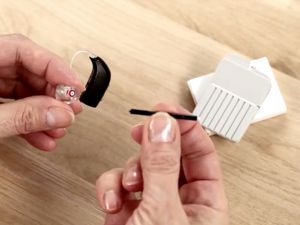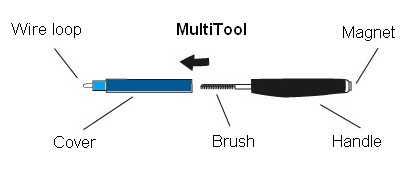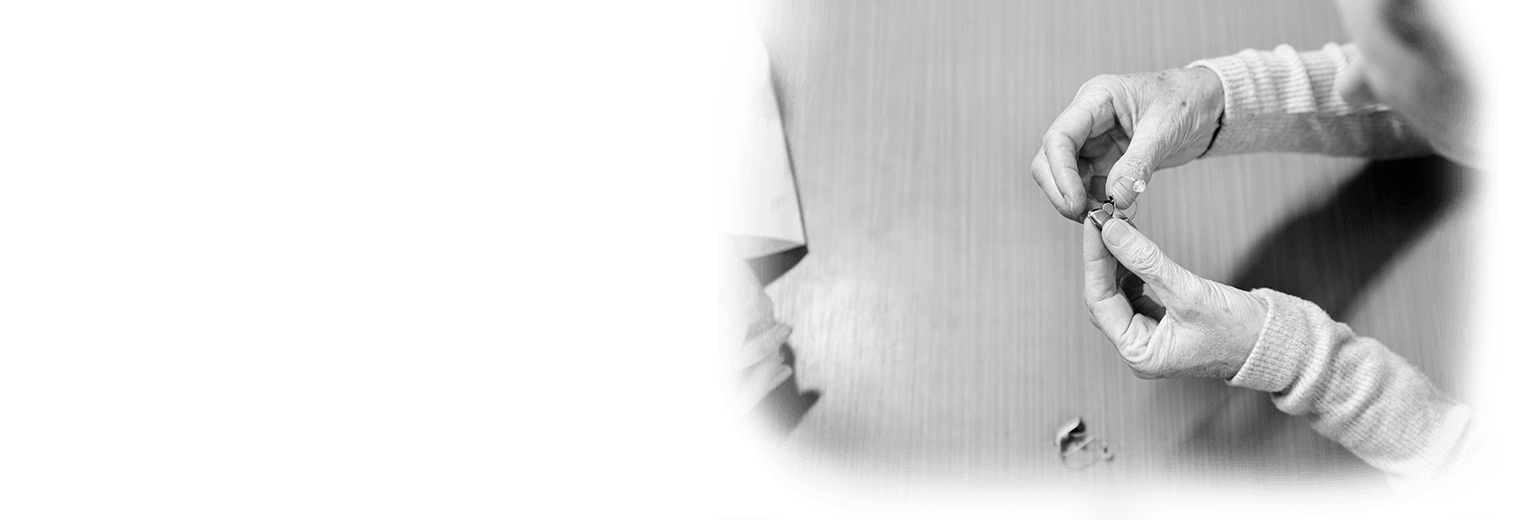|
www.HealthyHearing.com |
How to clean your hearing aids
By Emily Ostrowski, content manager, Healthy Hearing  Reviewed by
Mandy Mroz, AuD, Former President, Healthy Hearing Reviewed by
Mandy Mroz, AuD, Former President, Healthy Hearing Last updated on: March 14th, 2025 Regular hearing aid cleaning will provide years of reliable better hearing. Find out how to clean your hearing aids and protect your investment. Key points:
Hearing aids are a significant investment. To keep them in top working condition, they require regular cleaning. Unlike most electronics, hearing aids have to operate in conditions that are far from ideal: The inside of your ear canals where they are subjected to earwax and moisture. Regular cleaning combined with routine maintenance provided by your hearing care professional will give you years of reliable better hearing. How often should you clean hearing aids?To get the most from your hearing aids, we recommend cleaning them every day. In a survey by the American Academy of Audiology, nearly two-thirds of hearing aid users said they clean their devices daily to several times a week. Less commonly, some people admitted to cleaning their devices anywhere from once a week to only a few times a year or never. What are the best cleaning tips for hearing aids?
them working reliably. (Image courtesy Oticon)
What hearing aid cleaning tools should you use?Hearing aid tools can help you remove earwax from your devices. Earwax can accumulate in the opening at the end of a hearing aid where the sound comes out causing muffled sound or feedback (whistling). If buildup is there for long enough it can damage the receiver. Always follow the guidance of your hearing aid provider. Most likely, they'll recommend one or more of these common cleaning tools:

How to clean ITE (in the ear) hearing aidsWhen cleaning an ITE model:
How to clean BTE (behind the ear) hearing aidsTo clean a BTE hearing aid:
How do you care for hearing aid batteries?
Do you need a hearing aid dehumidifier?In some cases, it may be worthwhile to use a hearing aid dehumidifier, especially if you live in a humid climate, spend considerable time outdoors or perspire heavily. There are two types of hearing aid dehumidifiers. One type is a simple plastic jar with a desiccant that draws out moisture overnight. The other type is called a dry & store unit that uses ultraviolet light and air to dry and sanitize hearing aids. Both accessories are likely available through your hearing healthcare professional or online. Some rechargeable docking cases also dehumidify the devices as they charge. Related: Check out our full list of hearing aid accessories.
Is it time for new hearing aids?Even with the best care, hearing aids do have a natural lifespan of roughly 3-7 years. If you're noticing problems with your device or experiencing a decline in sound quality, it may be time for an upgrade. Learn more: Should I get new hearing aids? When to see a professionalHearing aids should be professionally cleaned roughly every six months or as recommended by your hearing care provider. They have tools such as vacuums with special attachments that gently remove wax from hard-to-reach places. Specialists also know how to clean vents, microphone screens, windscreens, and receivers safely. If you are not sure how to properly clean your hearing aids or if you feel your devices need special attention, ask your hearing care professional for help. If you need help finding an audiologist or hearing care specialist near you, our directory of consumer-reviewed hearing clinics is a good place to start. Emily Ostrowski, content manager, Healthy Hearing
You are reading about: Related topics
More information about hearing loss, hearing aid brands, assistive devices and tinnitus. Featured clinics near me
Earzlink Hearing Care - Reynoldsburg Find a clinicWe have more hearing clinic reviews than any other site! Related contentThe Healthy Hearing Report |
|
www.HealthyHearing.com |
How to clean your hearing aids
By Emily Ostrowski, content manager, Healthy Hearing  Reviewed by
Mandy Mroz, AuD, Former President, Healthy Hearing Reviewed by
Mandy Mroz, AuD, Former President, Healthy Hearing Last updated on: March 14th, 2025 Regular hearing aid cleaning will provide years of reliable better hearing. Find out how to clean your hearing aids and protect your investment. |



 Emily is an experienced journalist and medical content writer based in Maine. Passionate about delivering enlightening and accurate content, she is committed to empowering people to make informed choices regarding their hearing health.
Emily is an experienced journalist and medical content writer based in Maine. Passionate about delivering enlightening and accurate content, she is committed to empowering people to make informed choices regarding their hearing health.